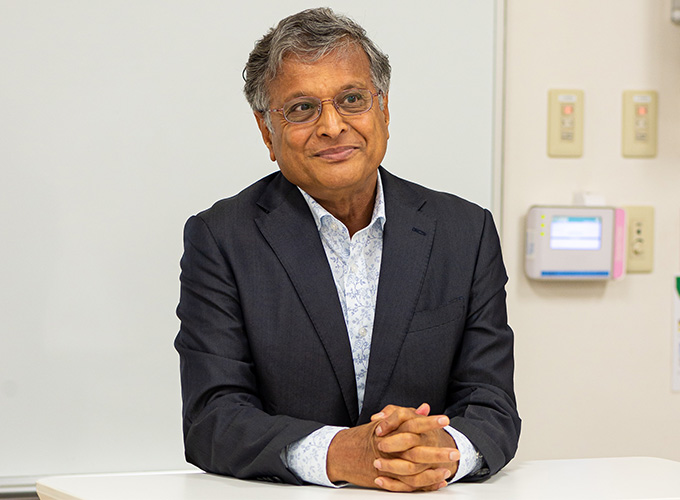Gautam Ray
Professor, M.A. in Economics, Ph.D. in Spatial Economics
- gautam.ray

- Areas of Research
- Economic Growth, Social Development, Social Capital, Scientific Spirituality, Hindu Spirituality, Indian Culture, Collective Action, Legitimacy, Public Policy, Supply Chain Management
- Profile
-
Dr. Gautam Ray studied at Presidency College, Calcutta and University College of Science and Technology, Calcutta, where he earned his B.Sc. (Honours) degree and M.Sc. in Chemistry. He also received his LL.B. from Delhi University.
In 1979, he joined India’s premier civil service and contributed to India’s economic reforms program from 1991 through 1995 when he served as the Director of the Ministry of Finance for Government of India and Secretary of India’s High Powered Tax Reforms Committee. In 1993, he received an invitation from the International Monettary Fund (IMF) at Washington DC. His contribution to India’s tax reform was recognized by IMF as he was selected for their international panel of fiscal experts. In 1995, he received a fellowship from the World Bank, Washington DC.
Between 1995 and 2003, he took academic leave from the Government of India and pursued graduate studies at Boston University. In 1997, he earned his MA in Economics, and in 2001 he earned his Ph.D. in Spatial Economics and Regional Growth at the Graduate School of Arts and Science at Boston University. Dr. Ray taught at Boston University School of Management from 2002 through 2003 before returning to his Indian Revenue Service cadre. In 2015, he retired from Indian civil service as Chief Commissioner and joined the Graduate School of Management at Kyoto University as Chair Professor, Asia Business Leader Program. Dr.Ray is now a full-time professor in charge of the International Academic Research Institute at Kyoto University of Advanced Science.
Dr. Ray is the Founder and Vice President of the Asian Institute of Public Policy and Development Studies, Kolkata. He received a fellowship from the World Bank, Washington DC in 1995-1997. He also received Kyoto University’s Best Professor Award in 2019.